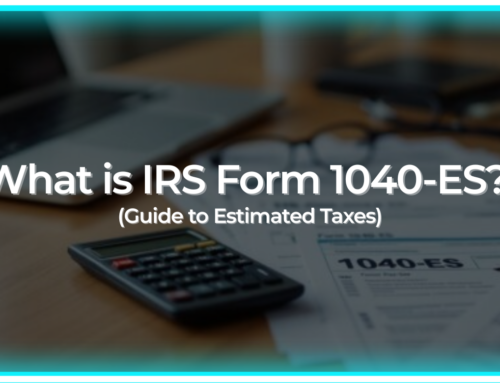Hey guys, I’m Bette Hochberger, CPA, CGMA. Savvy investors are constantly exploring new ways to stay ahead in real estate. This often involves thinking outside the box when organizing personal and business portfolios. However, there are boundaries to how far creativity can take you. If you own a Limited Liability Company (LLC) and are wondering whether you can rent property from it, the short answer is: yes, you can. However, the bigger question is whether you should.
Renting from your own LLC may offer some benefits, but it also comes with potential complications, particularly when it comes to taxes, legalities, and personal liability. Let’s get into the pros, cons, and key considerations of renting from your own company.
How It Works
When you create an LLC, it becomes a separate legal entity, meaning it can enter into contracts, own property, and engage in business transactions just like any other person or company. If your company owns real estate, it’s entirely possible for you (as an individual) to rent that property from it.
For example, if your LLC owns a commercial property, you could rent office space from your company for your personal use or for another business venture you operate. Similarly, if your company owns residential real estate, you might rent a home or apartment from your own company.
Pros of Renting From Your Own LLC
Limited Liability Protection
Renting from your LLC can offer you some liability protection, as the it is technically a separate legal entity. If there are any legal claims related to the property, they are generally limited to the company’s assets, not your personal assets.
Potential Tax Deductions
Depending on how you structure your rent payments and the purpose of the property (e.g., for business purposes), you may be able to claim certain deductions on your taxes. Your LLC can deduct expenses related to maintaining the property, and rent paid to the company becomes part of its taxable income.
Separation of Business and Personal Finances
Renting from your company creates a clear boundary between your personal and business finances. This can be beneficial in the eyes of both the IRS and creditors, ensuring that your LLC is treated as a legitimate business entity.
Cons of Renting
Tax Implications
While renting from your LLC can provide some tax benefits, it can also complicate your tax situation. The rent you pay to your LLC is considered income to the business, which will be subject to taxes. You’ll need to carefully structure rent payments and understand how this impacts both your personal and business tax filings.
Self-Rental Rule
The IRS has rules about “self-rentals,” which can limit your ability to deduct losses from properties you rent to yourself or a related business. This rule is particularly important if the LLC’s property generates a loss, as those losses might not be fully deductible on your personal taxes.
Piercing the Corporate Veil
If your LLC is not properly maintained as a separate entity, there’s a risk of “piercing the corporate veil.” This means creditors or the IRS could treat the LLC and you as the same entity, eliminating the liability protection the company is supposed to provide.
Potential Legal Issues
Depending on local laws and regulations, renting from your own LLC may raise legal questions, especially if the property is primarily for personal use. It’s essential to ensure that any rental agreement between you and your LLC is properly documented and follows all legal requirements to avoid complications down the road.
Key Considerations Before Renting From Your LLC
Purpose of the Property
Is the rental for business or personal use? Business rentals generally offer more flexibility and tax benefits than personal rentals. If you’re renting for personal reasons, be mindful of how this could affect the tax treatment of the property.
Proper Documentation
All rental agreements between you and your LLC should be formalized in writing. This includes setting fair market rent and making sure all transactions are properly documented. Failing to keep accurate records could raise red flags with the IRS.
Fair Market Rent
Make sure the rent you’re paying is at or near fair market value. Paying too little could raise concerns with the IRS, and paying too much could artificially inflate your LLC’s income, resulting in higher taxes.
Consult a Professional
Renting from your own LLC can be complicated, and the tax implications vary based on your situation. Before moving forward, it’s a good idea to consult with a CPA or tax attorney to ensure you’re making the best decision for your business and personal finances.
So, Should You Rent From Your Own LLC?
While it’s entirely possible to rent property from your own LLC, it’s not always the best choice. The decision depends on factors like your tax situation, the purpose of the property, and your long-term business goals. For some, the liability protection and tax benefits make it worthwhile. For others, the potential complications and IRS scrutiny might not be worth the hassle.
If you’re considering renting from your LLC, make sure you fully understand the tax and legal implications. Consulting with a tax professional specializing in real estate (such as myself!) can help ensure you’re making the most informed decision possible.
I hope you learned something new today, and as always, stay safe, and I’ll see you soon!







